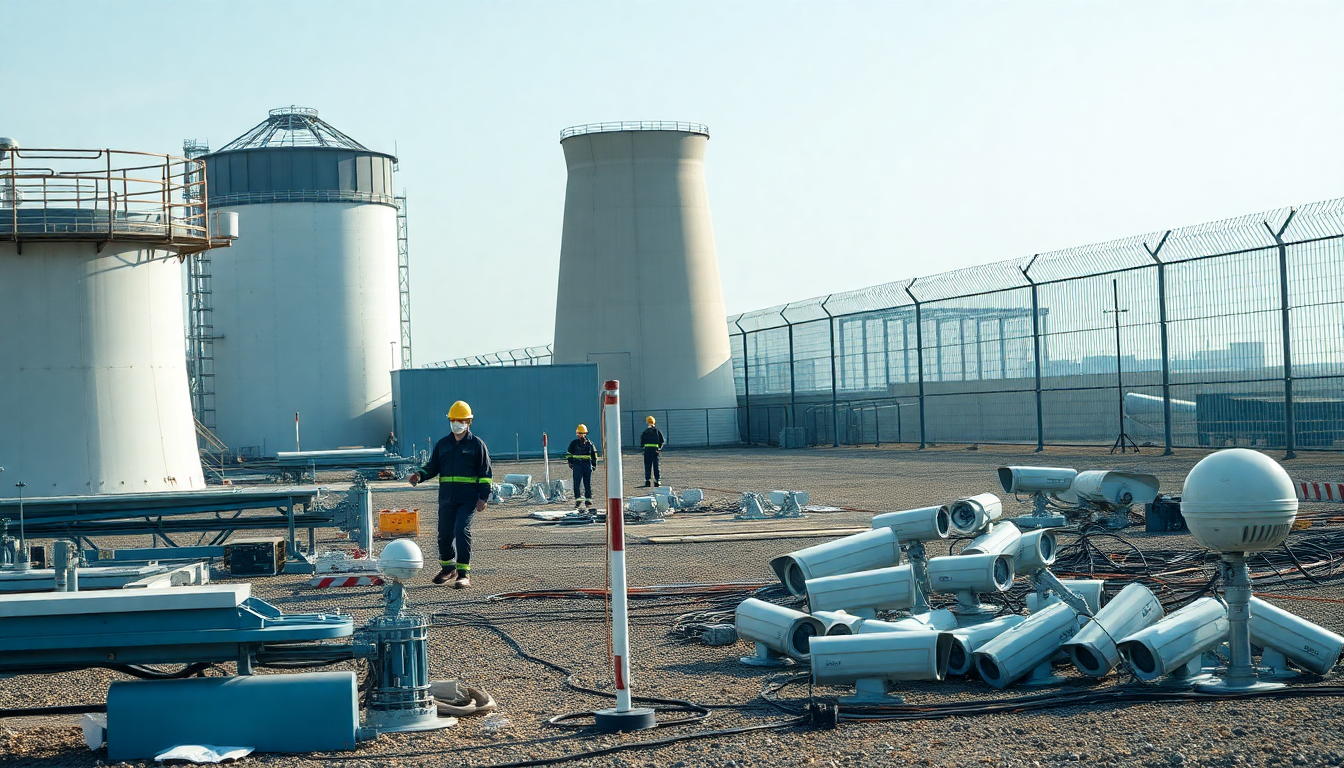Table of Contents
We’re living in a moment where the geopolitical landscape surrounding Iran’s nuclear program is shifting dramatically. Recent reports highlight that Tehran is making bold moves in response to claims that Israel has acquired sensitive information about its nuclear facilities. In a surprising announcement, the Iranian government has prohibited the head of the International Atomic Energy Agency (IAEA) from accessing its nuclear sites and has begun dismantling surveillance cameras that were put in place as part of international oversight commitments. Could this spell trouble for nuclear oversight in Iran and heighten tensions in the region? Let’s delve into what this all means.
The IAEA Access Dilemma
During a public gathering honoring military officials and nuclear scientists reportedly killed in recent Israeli strikes, Iran’s vice speaker of parliament, Hamid Reza Haji Babaei, revealed the ban on IAEA Director General Rafael Grossi. This move clearly indicates Iran’s growing security concerns and suggests a dramatic shift in its relationship with international nuclear oversight. Remember when Iran was more open with the IAEA? Under the Joint Comprehensive Plan of Action (JCPOA) in 2015, Iran allowed the agency access to its facilities and agreed to advanced surveillance measures. But since the Trump administration pulled out of the deal in 2018, Iran’s commitment has been on shaky ground.
In earlier negotiations, Iran had hinted it might remove IAEA surveillance equipment, adding to the already tense atmosphere of nuclear diplomacy. This policy shift follows a recent ceasefire after a short but intense conflict, during which Israel targeted Iranian nuclear sites with drones and airstrikes. These aggressive actions are part of Israel’s broader strategy to curb Iran’s nuclear ambitions and have led to retaliatory strikes on Israeli cities. How will this back-and-forth affect the future?
What This Means for International Relations
The implications of Iran’s decision to limit IAEA access are significant and complex. As tensions flare, the risk of conflict between Iran and Israel looms larger than ever. The international community, especially countries that were part of the original nuclear deal, must approach this delicate situation with caution. The reality is that if Iran continues to advance its nuclear capabilities without oversight, it could pose a major challenge not just for regional stability but for global security as well.
Moreover, discussions about the International Criminal Court’s (ICC) involvement, as proposed by German President Frank-Walter Steinmeier, suggest that the geopolitical repercussions extend well beyond the immediate conflict. The inclusion of nations like Venezuela in talks about sanctions, along with the removal of others such as the UAE and Gibraltar, adds layers of complexity to international relations surrounding these developments. How do these shifting alliances impact the bigger picture?
Future Trends and What to Watch For
As the situation unfolds, it’s crucial for stakeholders to stay alert and proactive in their diplomatic efforts. The removal of surveillance cameras and limiting IAEA access could indicate a trend toward increased isolation for Iran, which might lead to further escalations in tensions. The international community’s response will be key in determining whether diplomatic channels can be maintained or if we’re headed toward more conflict.
In summary, Iran’s recent actions highlight the precarious nature of nuclear diplomacy and the ongoing struggle to balance national security interests with international oversight. As the geopolitical landscape continues to evolve, all eyes will be on Tehran and its interactions with the IAEA, Israel, and the wider international community. The road ahead is certainly filled with challenges, but prioritizing dialogue and diplomacy is essential for global stability. What do you think will happen next?


